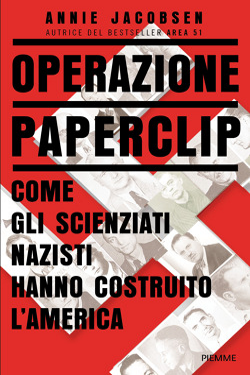

A graduate of Princeton University, she lives in Los Angeles with her husband and two sons.No matter how much hatred one holds for the Nazis, there is no denying that they were at the peak of the mountain in terms of technological research. Her two-part series "The Road to Area 51" was one of the most read in the Los Angeles Times Magazine.

the book is noteworthy for its author's dogged devotion to her research."- Janet Maslin, New York TimesĪnnie Jacobsen is a contributing editor at the Los Angeles Times Magazine and an investigative reporter whose work has also appeared in The National Review and The Dallas Morning News. Her research into the world of 'overhead,' the aerial espionage that needed to be developed in extreme secrecy, is compellingly hard-hitting. The age of weapons of mass destruction had begun and the underlying justification was that if America didn’t get these men, the Soviets surely would. In May of 1945, the US government began a covert operation code-named Operation Paperclip to bring the scientists and their families to the United States, often putting science before justice. Germany had a trove of elite Nazi scientists and the US government secretly debated whether the value of their knowledge outweighed their crimes.


Drawing on exclusive interviews with dozens of Paperclip family members, colleagues, and interrogators, and with access to German archival documents (including papers made available to her by direct descendants of the Third Reich's ranking members), files obtained through the Freedom of Information Act, and lost dossiers discovered at the National Archives and Harvard University, Annie Jacobsen follows more than a dozen German scientists through their postwar lives and into one of the most complex, nefarious, and jealously guarded government secrets of the 20th century.Īnnie Jacobsen, an investigative reporter and former contributing editor to the Los Angeles Times Magazine, tells the unbelievable but true story of how American military leadership schemed to hire Hitler’s weapons makers for their own organizations in the chaos following World War II. government secretly decided that the value of these former Nazis' knowledge outweighed their crimes and began a covert operation code-named Paperclip to allow them to work in the U.S. In the chaos following WWII, some of the greatest spoils of Germany's resources were the Third Reich's scientific minds. Operation Paperclip: The Secret Intelligence That Brought Nazi Scientists to America (Little Brown and Company)Īfter exposing the untold history behind Area 51, Annie Jacobsen tackles one of the most explosive American secrets post WWII.


 0 kommentar(er)
0 kommentar(er)
